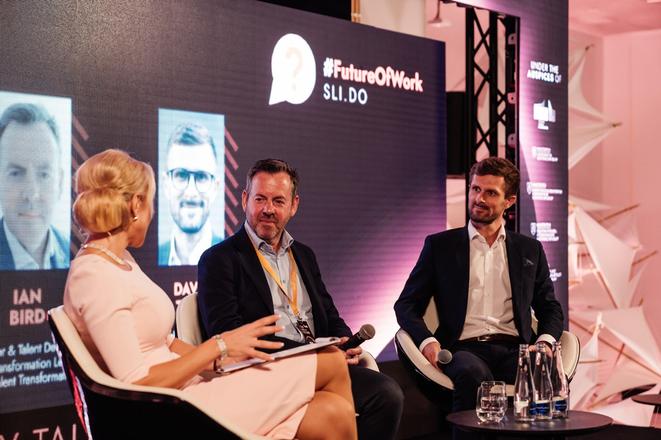While some fear that artificial intelligence (AI) and robots will automate all human work, reality is more nuanced. As automation and AI become integral to people’s jobs, there are skills workers will still be needing like communication, collaboration or critical thinking. Moreover, people should not fall prey to the temptation of using AI-powered solutions as shortcuts in their daily work, but instead focus on developing their skills for the long haul.
“Because one shortcut leads to another and another and another, and then you miss out on important skills that you only develop by doing the hard work,” David Timis, global communications & public affairs manager of the NGO Generation, told The Slovak Spectator. This global nonprofit organisation trains and places vulnerable people into life-changing careers that would otherwise be inaccessible.
You will read in this interview
-What David Timis uses AI chatbots to do
-What skills will he recommend students to acquire in the age of AI
-What are the pitfalls of deploying AI at work
Timis was one of the renowned experts who shared his perspective on what will be the essential skills for the future, and how AI-powered technologies will transform the future of work at the Festival of Future. This event marked the 30th anniversary of the American Chamber of Commerce (AmCham) held in Bratislava between September 10-12.
David Timis
David Timis is the Global Communications & Public Affairs Manager of Generation, the largest global employment program by annual volume that both trains and places people into life-changing careers that would otherwise be inaccessible. His mission in life is to prepare people for the future of work and his interests lie at the intersection of reskilling, employment, and technology. David was educated in Business and Management at the University of Glasgow and in European Political and Governance Studies at the College of Europe. He has 10 years of work experience in marketing, communications, and public affairs in organisations such as Google, L’Oréal, and BCW.
David has guest lectured at renowned universities such as Cambridge University and the College of Europe and delivered keynote speeches about the impact of technology on the future of work for a wide range of clients including TEDx, Google, and the European Commission. He has been recognised as an Influential Leader by the Association to Advance Collegiate Schools of Business, included on the Forbes 30 Under 30 List for his work to equip young people with digital skills, and selected by the World Economic Forum to be part of the Davos Lab.
The Slovak Spectator spoke with Timis about skills workers will still use in times of AI, reskilling, on whether AI will solve global environmental, social and economic challenges, and the challenges of distinguishing between what is true and what is hallucination.
When was the last time you used AI at work?
Fifteen minutes ago. I use it on a daily basis, but I use it in ways that are not the most typical. Most people, unfortunately, I would say, use ChatGPT, Gemini and other AI chatbots, for copywriting, to create text for them, social media posts, or summarise information. I use AI to gain new perspectives to what I believe or to brainstorm novel ideas. For example, I have an idea for a campaign and ask it for a similar idea or something more outside the box. If you use AI chatbots to brainstorm, the errors these tools make – they are not perfect, you will always have to review the outputs you get from them – can actually inspire you. I think this brainstorming use case is one of the most underrated ways to leverage AI-powered chatbots.



 David Timis, right, and Ian Bird, speaking at the Festival of Future held by the American Chamber of Commerce (AmCham Slovakia) in Bratislava on September 12. (source: Courtesy of David Timis)
David Timis, right, and Ian Bird, speaking at the Festival of Future held by the American Chamber of Commerce (AmCham Slovakia) in Bratislava on September 12. (source: Courtesy of David Timis)